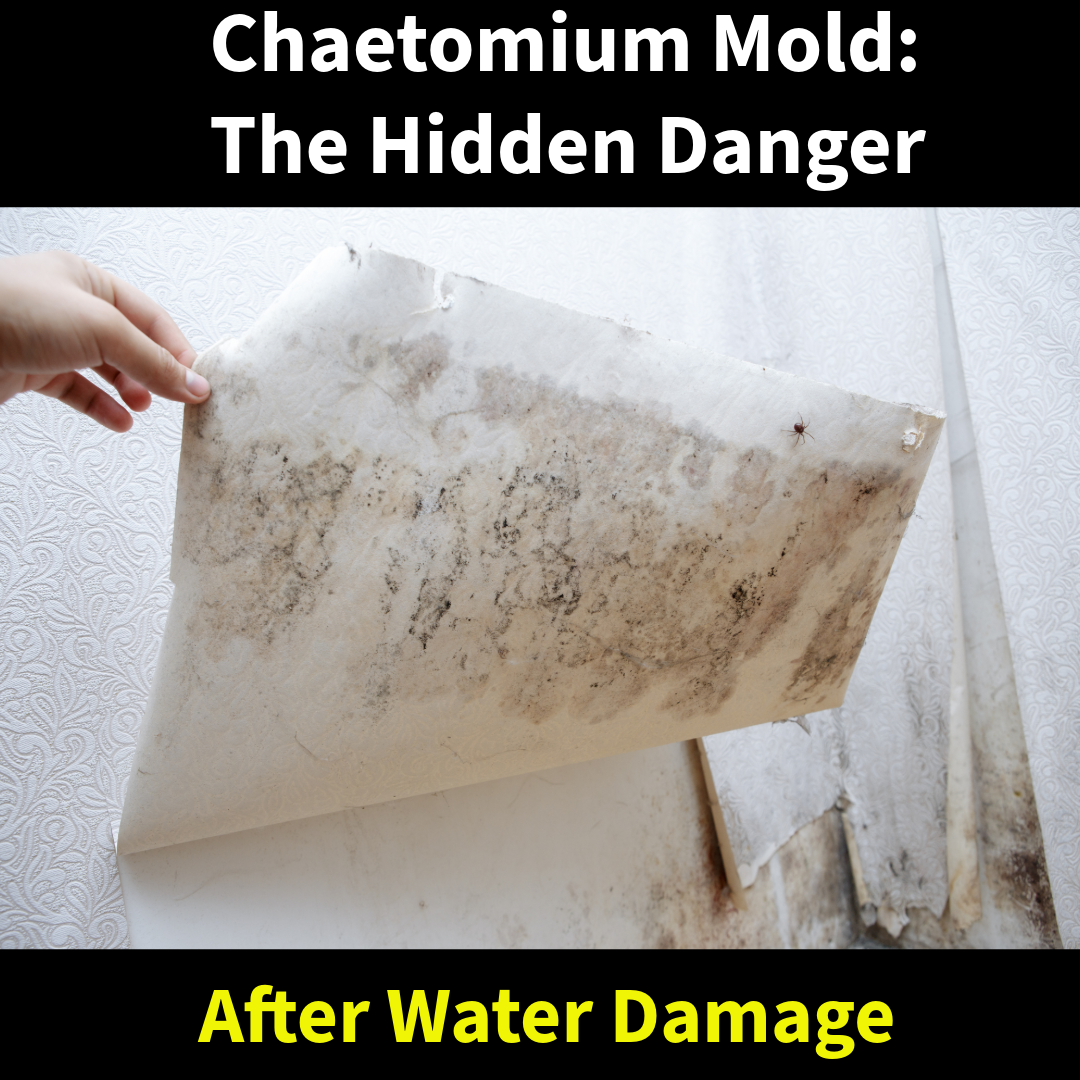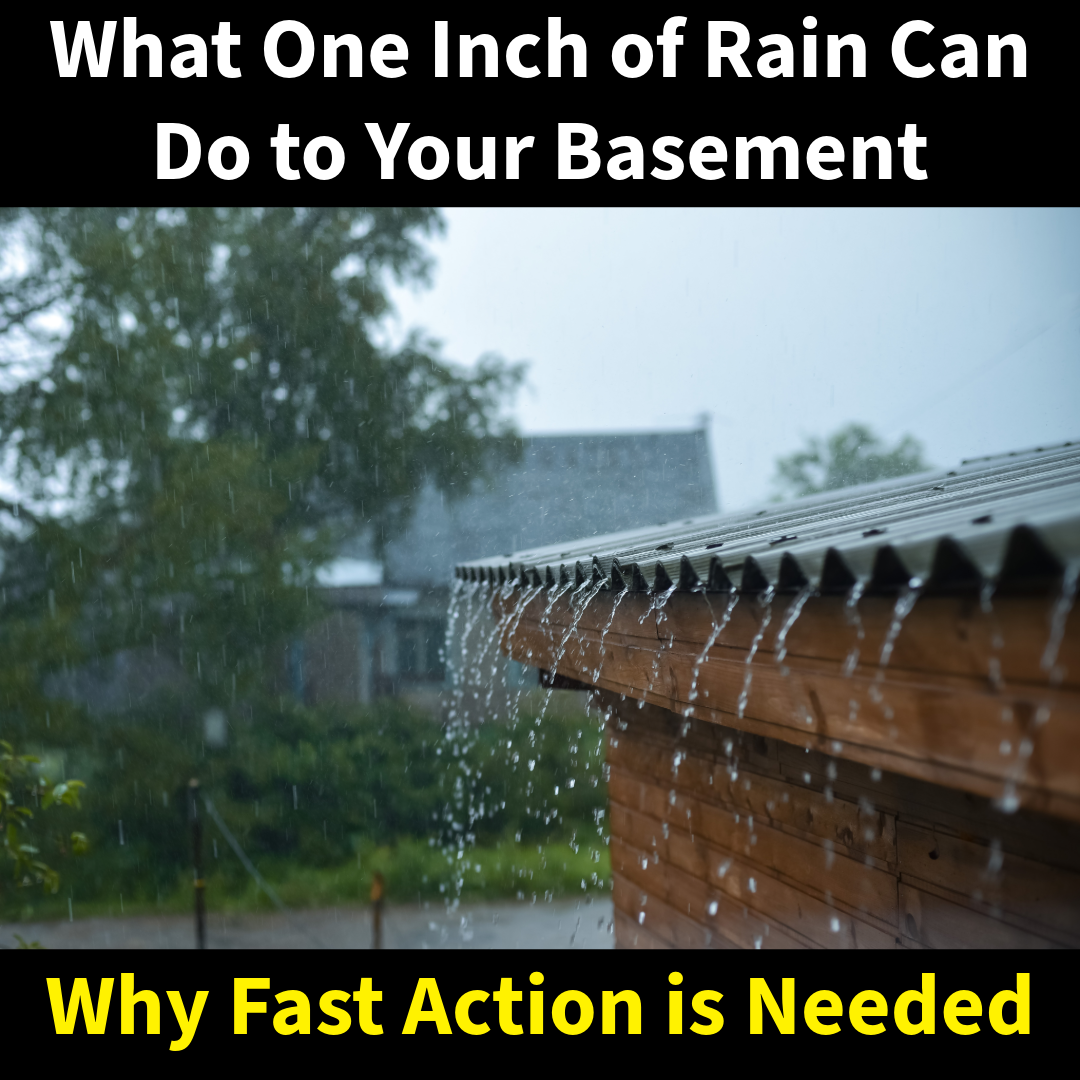Most homeowners know to worry about mold after a flood or leak—but they may not realize that some of the most destructive types of mold grow behind the scenes, inside walls or under carpets. One of the most commonly overlooked yet serious molds in water-damaged properties is Chaetomium (pronounced key-TOE-mee-um).
If your home or business has suffered a roof leak, plumbing failure, or flooding, you need to know about this mold—and why it’s a red flag for more than just allergies.
What Is Chaetomium Mold?
Chaetomium is a cellulose-loving mold commonly found in buildings that have suffered water damage. It thrives on materials like drywall, wallpaper, carpets, wood, and insulation—basically anything organic that stays damp for too long.
Unlike many molds that grow in visible patches, Chaetomium often hides inside walls or under floors, growing undetected until serious damage occurs.
Where Does Chaetomium Grow?
Chaetomium needs high moisture and cellulose to grow. It’s commonly found in:
- Drywall after roof or pipe leaks
- Carpet padding and subflooring
- Basement walls and foundation leaks
- Behind wallpaper or paneling
- Attics and crawlspaces with poor ventilation
Its presence often indicates prolonged moisture exposure—and sometimes deeper structural issues.
Health Risks Associated with Chaetomium
While Chaetomium isn’t as notorious as Stachybotrys (black mold), it can still cause a range of health issues, especially in people with:
- Asthma or respiratory sensitivity
- Weakened immune systems
- Allergies or chronic sinus infections
Exposure to Chaetomium spores may lead to:
- Persistent coughing or sneezing
- Skin and eye irritation
- Headaches or fatigue
- Neurological symptoms in severe or long-term cases
In rare situations, certain species of Chaetomium have been associated with opportunistic infections in immunocompromised individuals.
Why Chaetomium Indicates Bigger Problems
One of the biggest concerns with Chaetomium is that its presence often means there’s been significant, ongoing water damage. By the time it’s detected, building materials may already be compromised.
It’s also commonly found alongside other toxic molds like Stachybotrys and Aspergillus, which makes accurate identification and complete remediation critical.
How to Detect and Remove Chaetomium Mold
Chaetomium is difficult to identify without laboratory testing. That’s why professional mold inspection is the safest first step after water damage.
At MSI, we conduct:
- Air and surface mold testing to identify the type and severity of mold
- Moisture mapping to find the source of dampness
- Containment and HEPA air filtration to prevent cross-contamination
- Safe removal of affected materials followed by antimicrobial treatment
Because of its hidden nature and aggressive growth, Chaetomium cleanup should never be DIY.
Water Damage? Don’t Wait for Chaetomium to Appear
If your property has experienced flooding, leaks, or high humidity, don’t assume the problem is gone just because surfaces look dry. Hidden mold can begin growing within 24–48 hours of water exposure.
The sooner it’s identified, the easier and safer the cleanup process will be.
Schedule a Mold Inspection with MSI Today
At MSI, we’ve been inspecting and remediating mold since 1998. Our certified team has seen thousands of water-damaged buildings and knows exactly what to look for—even the mold you can’t see.
Call us at 877-712-1600 to schedule a professional mold inspection and protect your home, health, and investment.


